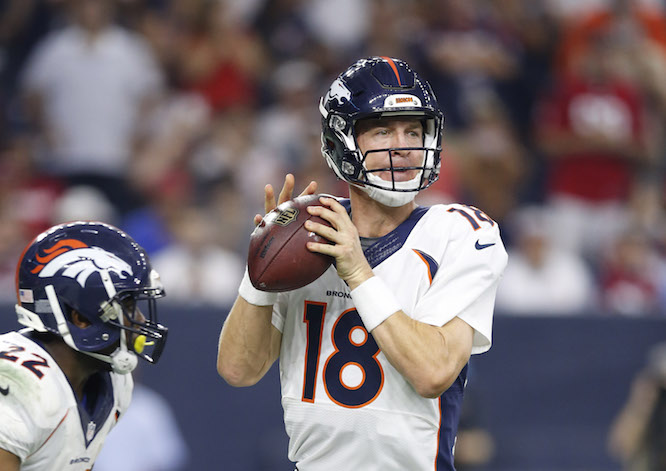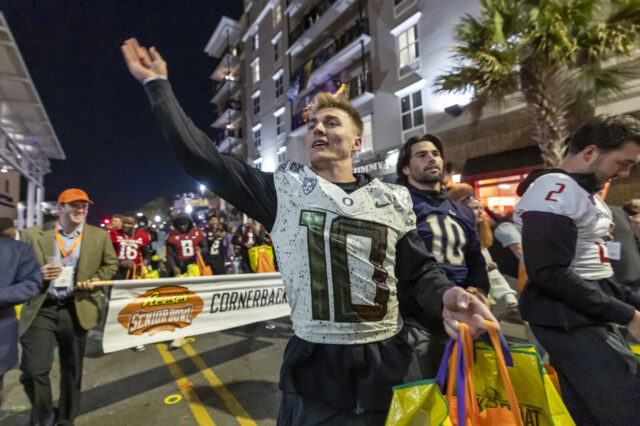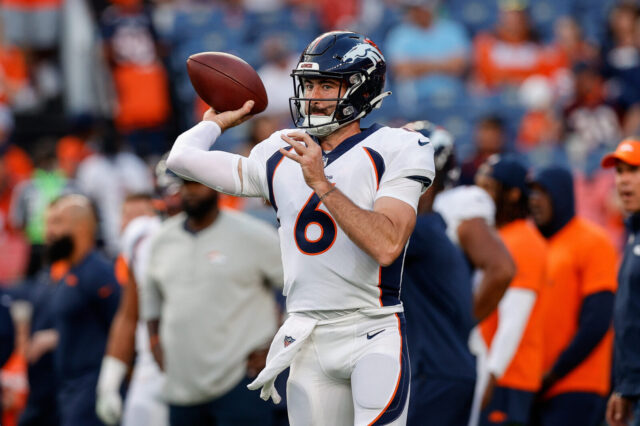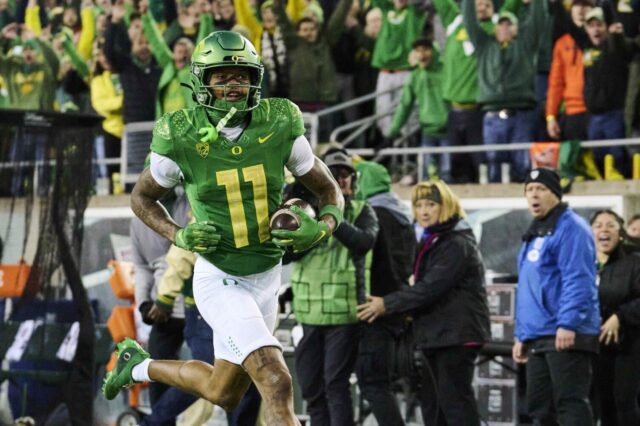As the breakdown shows, Peyton Manning’s 10 interceptions through the first six games of 2015 have very little to do with his physical ability. They aren’t the result of him being rushed and unable to escape the pocket. And they haven’t occurred because he doesn’t have the arm strength to reach his receivers and defenders are getting to the football first. Instead, Manning’s rash of interceptions are the result of him not properly reading the defense and/or making a bad decision.
The first part of that equation is somewhat understandable. Manning is learning a new offense, so there are bound to be some moments when he simply doesn’t realize the right thing to do in a particular situation. The second, however, is a little more concerning; a player as experienced as No. 18 shouldn’t be making poor choices; he needs to know that it’s sometimes better to settle for a field goal or pun the ball away instead of taking an unnecessary gamble.
With time, it’s reasonable to expect that Manning will solve the misreading problem. He’s a player that has excelled, particularly after returning from his four neck surgeries, by being one step ahead of the defense. Right now, the football computer in his head is simply running too slow; it’s not processing the information fast enough. As the season goes along, and he becomes more familiar with the offense, that will change.
The second problem is the bigger concern. To a large extent, this is a bigger rewiring job than the first issue, as it requires Manning to realize that he doesn’t have to make every play. He has a great defense, one that the Broncos can rely on; his job is to simply avoid putting them in bad spots. For a guy who is used to carrying his team, that’s a tough transition to make.
One thing is for certain, however: Manning doesn’t need to find the Fountain of Youth in order to rebound after the bye week. His problems aren’t physical; instead, they’re all mental.



